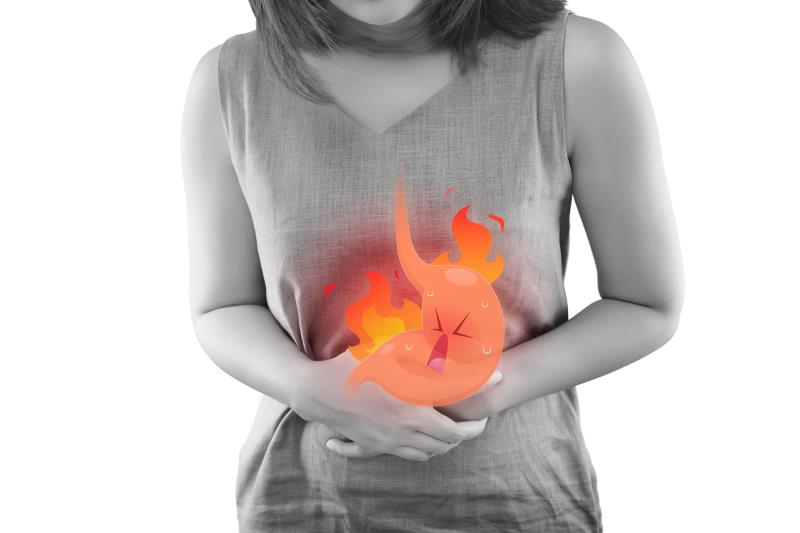
Surgery may be a potential treatment for patients who have persistent heartburn due to gastroesophageal reflux disease (GERD) despite treatment with proton-pump inhibitors (PPIs), according to a recent study.
Study participants were 366 individuals (mean age 48.5 years) who had presented at Veterans Affairs gastroenterology clinics for PPI-refractory heartburn. They received omeprazole 20 mg BID for 2 weeks. Endoscopy, oesophageal biopsy, oesophageal manometry, and multichannel intraluminal impedance-pH monitoring was carried out for patients with persistent heartburn (<50 percent improvement in GERD-Health Related Quality of Life [GERD-HRQL] score*).
A total of 288 patients were excluded during pre-randomization procedures. Of these, 42 were excluded following the 2-week omeprazole treatment due to relief of symptoms, while 99 were excluded due to functional heartburn and 23 for non-GERD oesophageal disorders. Seventy-eight patients (mean age 45.4 years, 64 male) with reflux-related heartburn refractory to PPIs were randomized to receive either active medical treatment with omeprazole (20 mg BID) plus baclofen (20 mg TID; desipramine 100 mg QD if necessary; n=25), surgical treatment with laparoscopic Nissen fundoplication (n=27), or omeprazole alone (control medical treatment; n=26). Patients were followed up at quarterly clinic visits and at 1 year.
At 1 year, more patients who underwent surgery experienced treatment success**, defined as a ≥50 percent reduction in GERD-HRQL score, than those who received active medical treatment (67 percent vs 28 percent; p=0.007; relative risk [RR], 2.38, 95 percent confidence interval [CI], 1.20–4.71). [N Engl J Med 2019;381:1513-1523]
Surgical treatment also appeared superior to omeprazole alone (67 percent vs 12 percent; p<0.001; RR, 5.78, 95 percent CI, 1.93–17.31), though there was no difference in treatment success rates between active medical treatment and omeprazole alone (difference, 16 percentage points, 95 percent CI, -5 to 38; p=0.17; RR, 2.43, 95 percent CI, 0.71–8.35).
Surgery was deemed successful in 71 percent of patients with reflux hypersensitivity and 62 percent of those with abnormal acid reflux.
“Our finding that reflux hypersensitivity can respond to fundoplication is noteworthy because reflux hypersensitivity is considered a functional disorder, which might not be expected to improve with a procedure that eliminates reflux without altering abnormal oesophageal pain perception,” the researchers pointed out.
Serious adverse events (AEs) occurred in four patients each in the surgery and active medical treatment groups (five and four AEs, respectively) and in three patients on omeprazole alone (five AEs).
“Our findings document the considerable superiority of antireflux surgery over feasible medical therapy for patients with reflux-related heartburn that is resistant to PPIs,” said the researchers.
The findings also suggest that GERD-related PPI-refractory heartburn may only be present in a small number of patients.
“Only 78 patients [of the 366 enrolled] completed the full assessment and were found to have GERD that was truly unresponsive to twice-daily PPIs,” noted the researchers.
As to why the 42 patients who reported PPI-refractory heartburn experienced relief with 2-week omeprazole, the clear instructions on correct timing of treatment (30 minutes before meals) may have played a role, the researchers said. Some patients who were previously taking other PPIs may also have responded better to omeprazole.